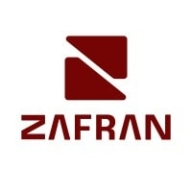


Skybox Security Suite and Microsoft Defender for Cloud are competing within the security solutions category, focusing on network and cloud-native security respectively. Microsoft Defender for Cloud demonstrates superior feature integration, making it more valuable for its robust capabilities.
Features: Skybox Security Suite provides robust network security tools including advanced vulnerability management, network modeling, and risk analysis. Microsoft Defender for Cloud offers comprehensive threat protection, compliance management, and integrations with Azure services. While Skybox is strong in network-focused features, Microsoft Defender stands out with its holistic cloud-oriented approach, which suits large-scale cloud environments.
Room for Improvement: Skybox requires enhancements in cloud security features and scalability to better serve cloud-centric organizations. It could also improve the customization of its modules for better deployment flexibility. Microsoft Defender for Cloud could benefit from more personalized customer support and reduction in its complexity to facilitate ease of use. An improvement in integration capabilities with non-Microsoft cloud services could expand its applicability.
Ease of Deployment and Customer Service: Skybox Security Suite is favored for its flexible deployment options suitable for complex network environments, coupled with positive customer support feedback. Microsoft Defender for Cloud excels in seamless integration within Azure, simplifying deployment for cloud-centric operations, though users perceive its support as less personalized. Skybox focuses on versatility, whereas Microsoft Defender offers smooth integration with popular cloud platforms like Azure.
Pricing and ROI: Skybox Security Suite offers a cost-effective setup that provides excellent ROI by enhancing network security measures. In contrast, Microsoft Defender for Cloud has a higher initial cost but delivers significant ROI through expansive protection across cloud infrastructures. Skybox's pricing model is efficient, while Microsoft Defender's premium pricing is justified by its advanced protection capabilities.



Zafran Security integrates with existing security tools to identify and mitigate vulnerabilities effectively, proving that most critical vulnerabilities are not exploitable, optimizing threat management.
Zafran Security introduces an innovative operating model for managing security threats and vulnerabilities. By leveraging the threat exposure management platform, it pinpoints and prioritizes exploitable vulnerabilities, reducing risk through immediate remediation. This platform enhances your hybrid cloud security by normalizing vulnerability signals and integrating specific IT context data, such as CVE runtime presence and internet asset reachability, into its analysis. No longer reliant on patch windows, Zafran Security allows you to manage risks actively.
What are the key features of Zafran Security?
What benefits can users expect from Zafran Security?
In industries where security is paramount, such as finance and healthcare, Zafran Security provides invaluable protection by ensuring that only exploitable vulnerabilities are addressed. It allows entities to maintain robust security measures while allocating resources efficiently, fitting seamlessly into existing security strategies.
Microsoft Defender for Cloud is a comprehensive security solution that provides advanced threat protection for cloud workloads. It offers real-time visibility into the security posture of cloud environments, enabling organizations to quickly identify and respond to potential threats. With its advanced machine learning capabilities, Microsoft Defender for Cloud can detect and block sophisticated attacks, including zero-day exploits and fileless malware.
The solution also provides automated remediation capabilities, allowing security teams to quickly and easily respond to security incidents. With Microsoft Defender for Cloud, organizations can ensure the security and compliance of their cloud workloads, while reducing the burden on their security teams.
Skybox Security Suite provides comprehensive tools for network and firewall compliance, vulnerability management, and change management, with a focus on risk reduction and network optimization.
Skybox Security Suite supports over 130 vendors with massive scalability and seamless integration, notably with Nessus and Qualys. Its features include network path analysis and offline attack simulation, which enhance management effectiveness. Despite its robust offering, improvements are needed in its UI, web interface, reporting detail, and customization. Automation, orchestration, and device policy provisioning require better support, and integration with tools like Rapid7 could be improved. Enhancements in firewall configuration checks, cloud connectivity, pricing, and marketing awareness are also called for, alongside a transition from Java GUI to a consistent web-based system.
What Are Key Features of Skybox Security Suite?Skybox Security Suite is commonly used in industries requiring strict compliance like finance and healthcare. Firms employ it for firewall audits, enhancing network visibility, and managing configurations against standards such as PCI, ensuring security and policy compliance across expansive networks.
We monitor all Vulnerability Management reviews to prevent fraudulent reviews and keep review quality high. We do not post reviews by company employees or direct competitors. We validate each review for authenticity via cross-reference with LinkedIn, and personal follow-up with the reviewer when necessary.